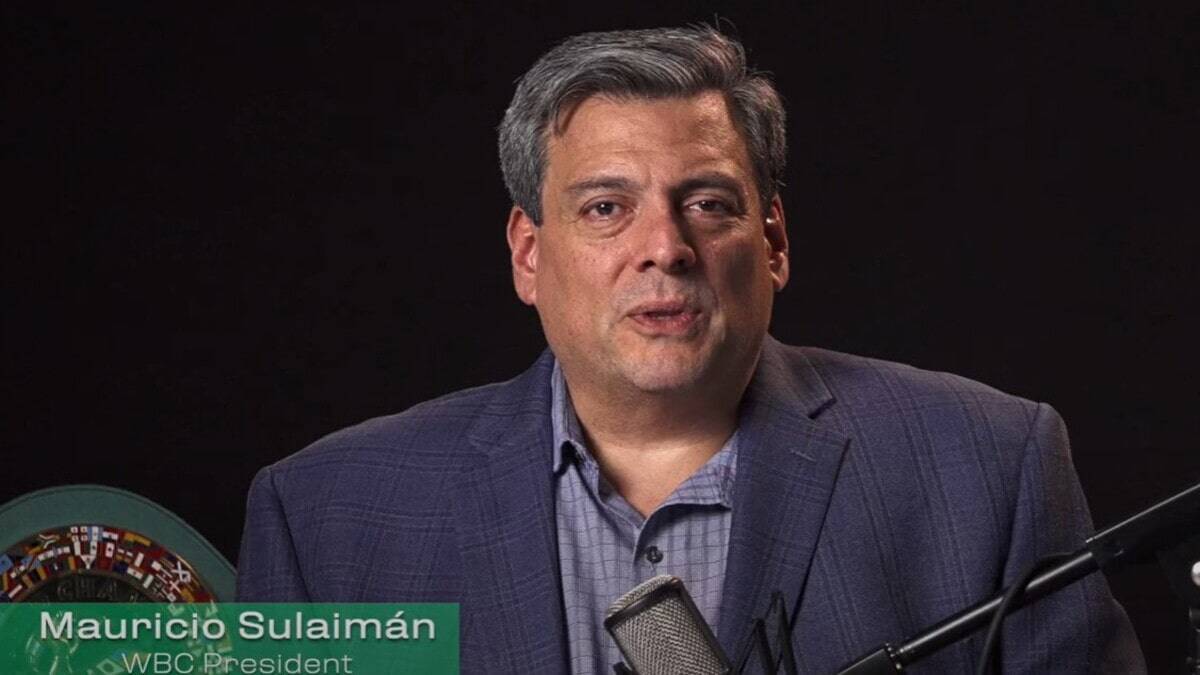The sport of fists has always existed, and over the centuries it has transformed, but the reality is that it was always a wild one, brutal, virtually inhuman and harboring significant risk to the contestants. There were basic rules of the sport, but for many years there was nothing with reference to the physical integrity of the participants, their safety and health.
When my dad accepted the Presidency of the World Boxing Council, he did so conditionally on starting a revolution and transformation, to implement safety measures, changes to the regulations, and fight against all types of abuse of power and discrimination.
In 1978, a research process began with UCLA hospital in Los Angeles. The million dollars the WBC donated to investigate the effects that boxing has on the brain produced preliminary results that led the United States government to donate 50 million more to continue these studies.
The final result led to the implementation of a protocol that is used today in all emergency rooms of hospitals in the world, the treatment of injuries in the armed forces, and all subsequent actions related to the issue.
In boxing, these discoveries led the WBC to change many rules, mainly reducing world championship fights from 15 to 12 rounds and weighing-in a day before, and not on the very day of the fight, among many others.
Mandatory medical studies were implemented for all boxers from the moment they apply to obtain a boxer’s license, annual exams for its renewal, mandatory specific exams for those who fight in world championship fights, exams and evaluations the week of the fight, the day of the weigh-in, and before entering the ring, as well as after the fight.
Boxers are courageous warriors, willing to get into the ring no matter what, and that is precisely why the obligation to protect them falls on the governing bodies of the sport and the boxing commissions where the fights take place. We endeavor to protect their well-being. We can all take pride that together we have saved countless lives and have improved the quality of life of fighters after their years in the ring. So many doctors, commissioners, and members of the boxing industry have worked passionately to make boxing safer year after year.
The WBC has organized three World Medical Congresses and countless regional conferences in many countries around the world. It is there where specialists meet, where presentations on general and specific topics are presented. Seminars are held, information is shared, and case studies and continuous work plans are determined to continue investigating, evaluating, and discussing to adjust and refine rules, implement protocols, and create education programs to encompass all members of the industry. Federations, commissions, doctors, trainers, promoters, and of course the boxers themselves are an integral part of this.
Last week, the third national medical congress of the FECOMBOX was held in Orizaba, Veracruz, Mexico, in coordination with the WBC. It involved 120 doctors from throughout the Mexican Republic. This meeting was at the Pueblo Mágico, and achieved one of the most successful outcomes.
Areas of great importance were discussed, including:
· Medical suspensions, periodicity, effective communication between entities and their mandatory nature
· Mental health in boxing
· Administration of medical services before, during and after the cards
· Obligations of promoters when presenting boxing cards
· Nutrition and Hydration
· Injuries, cuts, attention to ringside situations
· Weight, weighing and total administration.
One of the most important platforms for the administration of medical information of each fighter was presented. BOXMED, developed by Conexión Fácil and its president Andrew Kluger, is an application that is obtained on the cell phone by creating the profile of everyone. This platform is supported by a unique system that allows the administrator to be the support for boxing commissions, organizations, and mainly for the boxer.
The first item to attend to at BOXMED is weighing. It will take time, but the goal is for all boxers to record, through a video on the platform, their actual weight once a month, thus monitoring that they do not have to lose too much weight in the countdown to a fight, as well as monitoring their weight to try to make them conscience of the amount of weight that is put on when there is no fight scheduled.
The expert testimonies of Guadalupe Pintor, Rafael “Bazooka” Limon, and Tomas Rojas, all former WBC world champions, provided important information and clearly focused and reaffirmed the topics that were discussed.
The Congress proceedings will be further developed to serve as a work plan to achieve uniformity at the national level, and some of the topics will be taken to the WBC Convention in Hamburg, Germany, so that the medical committee can seek worldwide implementation.





